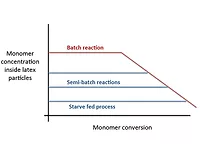What does F.O.B. Really Mean?
People ask me the meaning of the term F.O.B. more so than any other freight verbiage because they do not know what it stands for. In fact, recently I was at a prominent shipper in the northeast, and a high-level purchasing person actually called it fob (rhyming with “bob”). At that moment, I knew I needed to draw up an article to further explain how this often mis-used term actually is defined.
First of all, F.O.B. stands for Free On Board and indicates the price for goods including delivery at the seller’s expense to a specified point. In the purchasing world, F.O.B. is also used with an identified physical location to determine a) the responsibility for the payment of the freight charges and b) the point at which title for the shipment passes from the seller to the buyer.
In other words, F.O.B. is a purchasing term that is used between suppliers or customers. Every vendor and customer should have the F.O.B. requirements specified.
The following outlines how F.O.B. terms are used and identifies (1) who is paying for the freight and (2) who owns it at which point. F.O.B. terms are used in four different ways in a purchasing agreement.
1. FOB Origin, Freight Collect
2. FOB Origin, Freight Prepaid
3. FOB Destination, Freight Collect
4. FOB Destination, Freight Prepaid
F.O.B. Origin, Freight Collect: “Origin” means that the buyer assumes title of the goods the moment the freight carrier picks up and signs the bill of lading at the origin pick-up location. The buyer also assumes risk of transportation and, therefore, responsibility for filing claims in case of loss or damage. “Freight collect” means the buyer is responsible for the freight charges.
F.O.B. Origin, Freight Prepaid: “Origin” means the same as above but the “freight prepaid” part means the seller is responsible for the freight charges.
F.O.B. Destination, Freight Collect: “Destination” means the seller retains title and control of the goods until they are delivered. The seller selects the carrier and is responsible for the risk of transportation and filing claims in case of loss or damage. “Freight collect” means the buyer is responsible for the freight charges. F.O.B. Destination, Freight Prepaid: “Destination” means the same as above and “freight prepaid” means the seller is responsible for the freight charges.
Concerned about what this distributor was liable for, the first thing I wanted to find out was what the F.O.B. terms are with his vendors. The vendor who he refused the most shipments from had the terms “F.O.B. Origin, Freight Prepaid”. This meant that although his vendor was paying the freight, he owned the freight, and responsibility of loss or damage, as soon as the carrier picked it up. So by refusing the freight, he was returning something that he actually owned at this point.
There are a few reasons why it is not smart to refuse a shipment when it is F.O.B. origin. First of all, in this case his vendor has no reason (besides being a nice guy) to accept those goods back. The distributor owned them as soon as the trucking company picked them up. By returning a shipment, this distributor is raising the risk for more possible damages by going back through the carriers’ system back to the vendor.
Technically, when an order gets delivered back to the vendor, they could refuse it because they no longer own it at that point. Luckily for the distributor, his vendor is very nice. They accept the returned items, file the claims on his behalf, and are quick to replace orders. But they are just being nice and this distributor could get shafted at some point.
The other option is to change the terms to “F.O.B. Destination, Freight Prepaid” (in this case). If it is “F.O.B. Destination”, then the distributor could refuse the shipment because they do not own it until it is delivered properly.
The bottom line is that people need to pay attention to these F.O.B. terms. There are a lot of suppliers and vendors that try to do the right thing by their customer, regardless what the F.O.B. terms are. But, that doesn’t mean you should ignore what your F.O.B. terms are with your vendors and customers.
If you are a shipper, make sure the F.O.B. terms are the way you want them to be. You may want them to be “F.O.B. Origin” so your customers own the goods when they leave your door. Or, you may want to own them until they are delivered intact. In fact, that is a good selling point to your customers if that is the way you want to do business.
The same is true for companies who receive a lot of goods. Make sure the F.O.B. terms suit your needs.
George Muha is a Sales Manager for Logistics Management, Inc., a U.S. based 3rd Party Logistics company that specializes in helping companies to reduce their freight cost. To contact George to see what he can do for your company call him at 908/879.2978 or email him at gmuha@lmiservices.com.
First of all, F.O.B. stands for Free On Board and indicates the price for goods including delivery at the seller’s expense to a specified point. In the purchasing world, F.O.B. is also used with an identified physical location to determine a) the responsibility for the payment of the freight charges and b) the point at which title for the shipment passes from the seller to the buyer.
In other words, F.O.B. is a purchasing term that is used between suppliers or customers. Every vendor and customer should have the F.O.B. requirements specified.
The following outlines how F.O.B. terms are used and identifies (1) who is paying for the freight and (2) who owns it at which point. F.O.B. terms are used in four different ways in a purchasing agreement.
1. FOB Origin, Freight Collect
2. FOB Origin, Freight Prepaid
3. FOB Destination, Freight Collect
4. FOB Destination, Freight Prepaid
F.O.B. Origin, Freight Collect: “Origin” means that the buyer assumes title of the goods the moment the freight carrier picks up and signs the bill of lading at the origin pick-up location. The buyer also assumes risk of transportation and, therefore, responsibility for filing claims in case of loss or damage. “Freight collect” means the buyer is responsible for the freight charges.
F.O.B. Origin, Freight Prepaid: “Origin” means the same as above but the “freight prepaid” part means the seller is responsible for the freight charges.
F.O.B. Destination, Freight Collect: “Destination” means the seller retains title and control of the goods until they are delivered. The seller selects the carrier and is responsible for the risk of transportation and filing claims in case of loss or damage. “Freight collect” means the buyer is responsible for the freight charges. F.O.B. Destination, Freight Prepaid: “Destination” means the same as above and “freight prepaid” means the seller is responsible for the freight charges.
Okay, I've got it! Now how does this affect my company?
Well, this can affect you in some serious ways if you are not careful. I was recently at a distributor who receives a lot of freight from various vendors. He has a policy on his dock to tell his receiving guys that if an order has the slightest sign of damage to refuse the order. He does not want to file a claim or deal with the process of ordering replacement parts for potential damages. So he just tells his dock people to refuse the shipment at the receiving dock.Concerned about what this distributor was liable for, the first thing I wanted to find out was what the F.O.B. terms are with his vendors. The vendor who he refused the most shipments from had the terms “F.O.B. Origin, Freight Prepaid”. This meant that although his vendor was paying the freight, he owned the freight, and responsibility of loss or damage, as soon as the carrier picked it up. So by refusing the freight, he was returning something that he actually owned at this point.
There are a few reasons why it is not smart to refuse a shipment when it is F.O.B. origin. First of all, in this case his vendor has no reason (besides being a nice guy) to accept those goods back. The distributor owned them as soon as the trucking company picked them up. By returning a shipment, this distributor is raising the risk for more possible damages by going back through the carriers’ system back to the vendor.
Technically, when an order gets delivered back to the vendor, they could refuse it because they no longer own it at that point. Luckily for the distributor, his vendor is very nice. They accept the returned items, file the claims on his behalf, and are quick to replace orders. But they are just being nice and this distributor could get shafted at some point.
What should this distributor do instead?
In this case, the distributor should be accepting these partially damaged shipments (since they technically own them) and have an inspector come in to check them out. If there can be a replacement, the distributor should order the parts and have them replaced. All this should be covered by the carrier via a claim settlement.The other option is to change the terms to “F.O.B. Destination, Freight Prepaid” (in this case). If it is “F.O.B. Destination”, then the distributor could refuse the shipment because they do not own it until it is delivered properly.
The bottom line is that people need to pay attention to these F.O.B. terms. There are a lot of suppliers and vendors that try to do the right thing by their customer, regardless what the F.O.B. terms are. But, that doesn’t mean you should ignore what your F.O.B. terms are with your vendors and customers.
If you are a shipper, make sure the F.O.B. terms are the way you want them to be. You may want them to be “F.O.B. Origin” so your customers own the goods when they leave your door. Or, you may want to own them until they are delivered intact. In fact, that is a good selling point to your customers if that is the way you want to do business.
The same is true for companies who receive a lot of goods. Make sure the F.O.B. terms suit your needs.
George Muha is a Sales Manager for Logistics Management, Inc., a U.S. based 3rd Party Logistics company that specializes in helping companies to reduce their freight cost. To contact George to see what he can do for your company call him at 908/879.2978 or email him at gmuha@lmiservices.com.
Looking for a reprint of this article?
From high-res PDFs to custom plaques, order your copy today!







